1. Hormone Balancing
Guess what, guys? Optimal level of testosterone not only increases your energy, improves mood, protects against heart disease, improves sexual function, helps lose that stubborn belly fat, but also correlates to a longer life!1, 2 Given that cardiovascular disease stands as the leading cause of death for men and women in the US, it may not be a bad idea to get that testosterone level checked.3 Balanced hormones within your systems can do wonders for how you look, feel, and function. Phoenix Men’s Health Center provides various options when it comes to balancing your hormones, and our bio-identical hormone therapy is effective and safe and ideal for antiaging!
2. Botox
Botox’s first use comes as the solution for wrinkles, but its medical uses surpass the wrinkle-freeze aspect. Botox is derived from Clostridium botulinum, a bacterium that’s also known to cause temporary muscular paralysis. Botox is a potent neurotoxin that’s been FDA-approved for wrinkle treatments at miniscule doses. It works by blocking the signals between the nerves and the muscles, arresting the muscles in their place. Botox has been used safely since the 70s for wrinkle treatment, but is also approved for migraine prevention, overactive bladder, armpit sweating, and shows promise in off label uses such as depression and painful sex.4 Read the article from the TIME magazine on Botox here for more information. Phoenix Men’s Health Center now offers Botox treatments for patients!
3. Platelet Rich Plasma (PRP)
Platelet Rich Plasma consists of highly concentrated platelets extracted from your own blood, which increases growth factors in the injected area. PRP is an extremely effective treatment for skin rejuvenation and hair regrowth because it
stimulates healing and cell growth.
PRP can help with wrinkles, scars, stretch marks, tightening and strengthening of skin, and help grow back hair in bald patches. Because it uses your own cells, PRP is very safe. Patients can expect improvement in matter of weeks to months. Read our previous blog post on PRP.
4. Skin Care
In Phoenix, Arizona, we get more than 300 days of sunshine a year. It’s easy for men to neglect skin care, thinking it’s for women. However, research points to the importance of skincare for both men and women. UV radiation from the sun damages skin cells and induces mutation, which can result in skin cancer.5 In fact,
Arizona men are being diagnosed with melanoma at a rate 75% higher
than women according to the Environmental Protection Agency!6 Not only does moisturizer and sunscreen protect your skin from early aging, it’s an absolutely crucial (and easy) step to prevent skin cancer.7
5. Weight Loss
Having a healthy weight is crucial to living a long, healthy life.8 Although Phoenix Men’s Health Center recommends healthy diet and regular exercise first and foremost for weight loss, we also are able to prescribe medicine, such as phentermine and more, to aid your weight loss journey. Phentermine is a prescription-only weight loss aid drug that works by decreasing appetite. Our physicians will assess your whole health, including if there are any medical factors obstructing your weight loss. These can include thyroid problems, unbalanced hormones, diabetes, and more. And then we can come up with a customized plan for your weight loss, while monitoring your health markers along the way.
Phoenix Men’s Health Center’s experience providers offer customized treatment plans and counseling for antiaging. Ask us about our Botox, PRP, and bio-identical testosterone treatments for antiaging today!
- Khaw, K., Dowsett, M… & Day, N. (2007). Endogenous testosterone and mortality due to all causes, cardiovascular disease, and cancer in men. Circulation, 116(23), 2694-2701.
- Laughlin, G., Barrett-Connor, E., & Bergstrom, J. (2008). Low serum testosterone and mortality in older men. The Journal of Clinical Endocrinology & Metabolism, 93(1), 68-75.
- https://www.cdc.gov/nchs/fastats/leading-causes-of-death.htm
- http://time.com/4623409/botox-drug-treating-everything/
- Ichihashi, M., Ueda, M… & Horikawa, T. (2003). UV-induced skin damage. Toxicology, 189(1), 21-39.
- https://www.epa.gov/sites/production/files/documents/az_facts_print.pdf
- Green, A., Williams, G., Logan, V., & Strutton, G. (2010). Reduced melanoma after regular sunscreen use: randomized trial follow-up. Journal of Clinical Oncology, 29(3), 257-263.
- Kushner, R. (1993). Body weight and mortality. Nutrition Reviews, 51(5), 127-136.
**This content is for informational purposes only and is not intended as medical advice. Please consult with a healthcare professional before starting any treatment. Individual results may vary based on health conditions and other factors.

